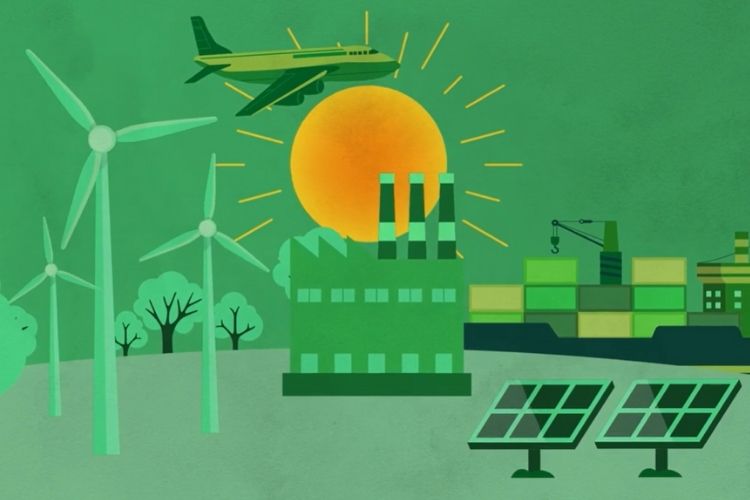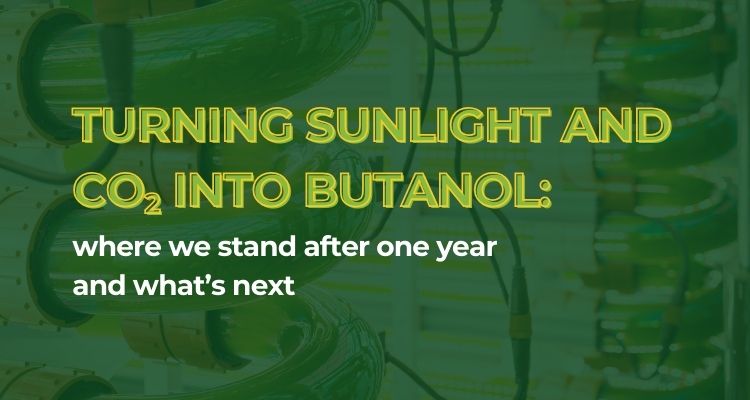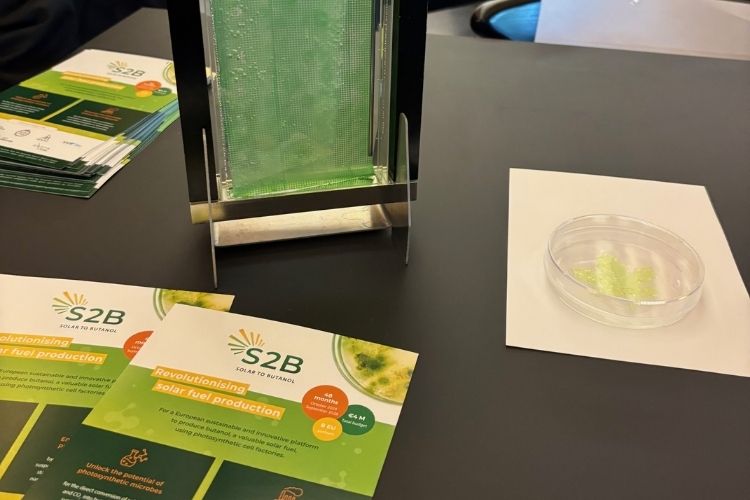🧪 Biotechnology
🏭 Biomanufacturing
📐 Engineering biology
Biotechnology
The practical use of living organisms, as well as parts, products and models of them, for human purposes, and the body of knowledge that pertains to this endeavour.
In S2B:
Engineered cyanobacteria + nanomaterials to convert light, water and CO₂ into n-butanol
Biomanufacturing
The commercial scale industrial production of goods using biotechnology as a core process component.
In S2B:
- Design advanced scaffold materials for cell entrapment that improve light distribution and CO2 capure
- Engineer the next-generation solid-state photosynthetic cell factories (PCFs) for long-term production of n-butanol
Engineering biology
The design, construction, and/or assembly of the components of living systems to achieve an intended function or outcome. It includes the use of approaches such as genetic engineering and metabolic engineering.
In S2B:
Strain engineering
- to increase CO₂ fixation and conversion
- to improve light harvesting
for durable, scalable n-butanol production
Why it matters now?
EU policy is actively shaping the field (see the Commission’s communication on Boosting Biotechnology & Biomanufacturing in the EU). Shared definitions help align science, industry and policymaking.
At S2B, we bring these three together on a solid-state photosynthetic platform to make sustainable n-butanol from light, water and CO₂.
Sources:
• IBISBA – « Navigating Biotech-related terminology: pointers for European policymakers » (Policy Note, 2025): https://hub.ibisba.eu/documents/79
• European Commission – Communication COM(2024)137 « Building the future with nature: Boosting Biotechnology and Biomanufacturing in the EU »: https://eur-lex.europa.eu/legal-content/EN/TXT/?uri=CELEX:52024DC0137






